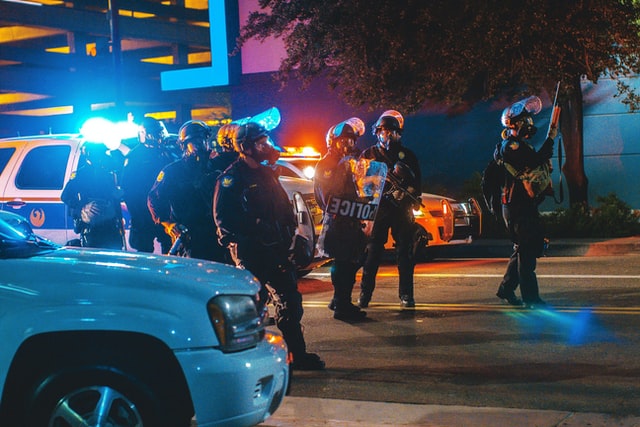Police killing black people is a pandemic, too
By Osagie Obasogie,
The Washington Post
| 06. 05. 2020
Black lives seem not to matter, which reveals an underlying eugenic ideology in the United States of letting disease and violence thin the herds of undesirable groups.
Photo by AJ Colores on Unsplash
Pandemics are often thought to be unforeseeable acts of God that emerge suddenly to wreak havoc on unsuspecting populations. But that’s not how public health practitioners think about them. More often than not, pandemics have a political economy behind them, in which substandard living and working conditions connected to social inequalities produce opportunities for disease to spread unchecked. That was true for the 1918 flu pandemic that started on farms in Haskell County, Kan., and it also appears to account for the emergence of the novel coronavirus.
Those social and political contexts also help explain another pandemic — one that, like the coronavirus that still rages, is also disproportionately killing black Americans. Make no mistake: Police violence is a public health problem.
Three months into the widespread outbreak in the United States, the data on racial disparities in coronavirus infections and deaths is staggering. Majority-black counties have three times the rate of infections and nearly six times the rate of deaths as their white counterparts, according to a Washington Post analysis from April...
Related Articles
By David Jensen, California Stem Cell Report | 02.10.2026
Touchy issues involving accusations that California’s $12 billion gene and stem cell research agency is pushing aside “good science” in favor of new priorities and preferences will be aired again in late March at a public meeting in Sacramento.
The...
By Teddy Rosenbluth, The New York Times | 02.09.2026
Dr. Mehmet Oz has urged Americans to get vaccinated against measles, one of the strongest endorsements of the vaccine yet from a top health official in the Trump administration, which has repeatedly undermined confidence in vaccine safety.
Dr. Oz, the...
By Leah Romero, SourceNM | 02.06.2026
An historical poster from 1977 created by Rachael Romero for the
Wilfred Owen Brigade in San Francisco, California. (Library of Congress)
Members of the New Mexico Legislature’s House Government, Elections and Indian Affairs Committee advanced a memorial Friday that calls...
By Pei-Chieh Hsu, Taiwan Insight | 02.02.2026




